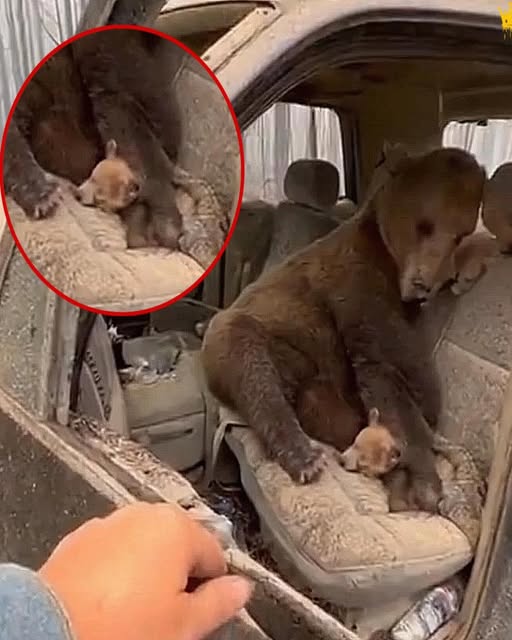
As wildfires tore through Los Angeles, painting the skies a blazing red and thickening the air with suffocating smoke, a police officer patrolled the outskirts of an evacuated neighborhood. The landscape was devastated—homes reduced to ash, hillsides blackened, silence hanging heavy over the ruins. Then, a sudden crash shattered the stillness. Expecting a looter, the officer approached cautiously—only to stop in his tracks.
There, beside the road, sat a scorched car, its windows clouded with soot. Inside, a mother bear was curled protectively over her cub’s lifeless body. Her fur was singed, her breathing slow and labored, eyes brimming with a grief so deep it felt almost human. The tiny cub lay still beneath her, blanketed in ash. Fire crews would later confirm the cause—smoke inhalation.
But the mother had not run. She had carried her baby to the only shelter she could find—an abandoned car—and stayed. She wasn’t hostile. She wasn’t afraid. She was grieving. With each slow breath, each tender nudge, she showed a love fierce enough to stand against fire itself.
It took wildlife rescuers hours to gain her trust. When they gently lifted the cub and wrapped it in a blanket, she rose and followed, never more than a few steps behind. Her head hung low, her gaze fixed on the bundle in their arms. One firefighter recalled, “She kept watching us, making sure we still had her baby. None of us walked away the same after that.”